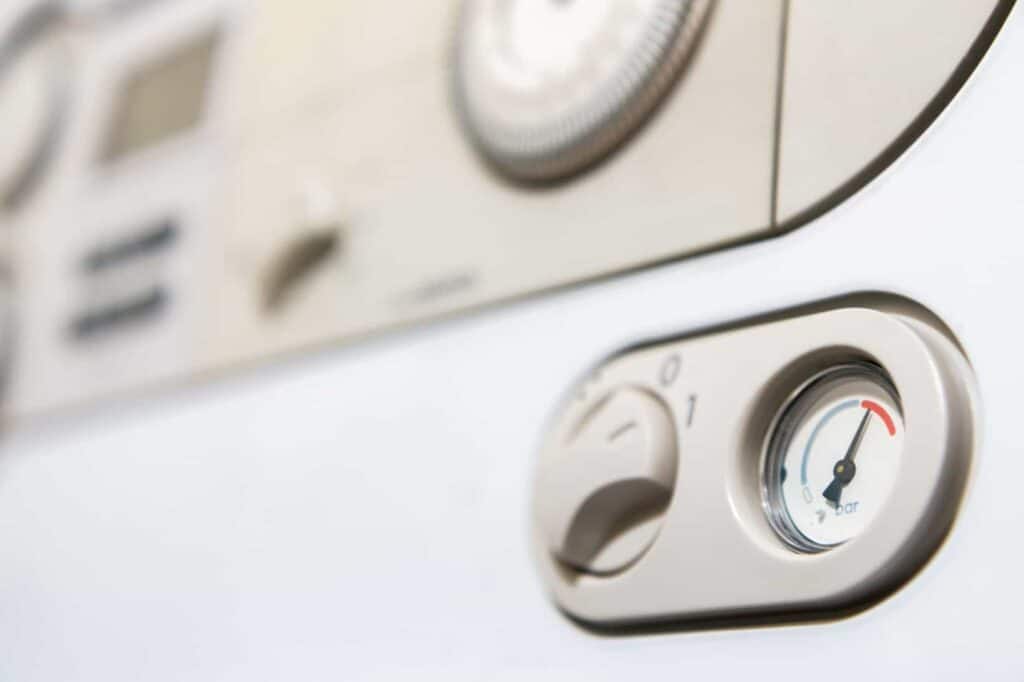
Summer’s over, the nights are drawing in and the weather’s on the change. Time to check the boiler and that the radiators are working. If you are thinking of replacing your gas boiler, maybe its old and clunky or you have heard how much you can save with a new energy efficient one, then be careful, boilers are not cheap and you need to be sure you choose the right one for your home. But fear not and read on, as we have put together a handy guide for you.
Efficiency & Control
Before we get into describing the different boiler types, we need to talk about efficiency and control. Gas boiler design has improved significantly in the last few years and a new boiler will be significantly more efficient than your old one.
And by efficiency, we mean cheaper to run and less polluting.
Since 2005 nearly all new boilers have to be condensing boilers. These are very energy efficient because they capture some of the heat which would otherwise escape through the exhaust flue and re-use it. This means they get more heat per amount of fuel used.
Since 2010 all new boilers must be A-rated for energy efficiency on the SEDBUK (Seasonal Efficiency of Domestic Boilers in the UK) scale. This means they must be a minimum of 88% efficient.
Additionally, over the last few years the technology behind heating control systems has become cleverer. Heating controls let you manage when, where and at what temperature your heating system is working, helping you to control both the warmth of your house and limiting energy wasted heating it when you don’t need to.
Boiler Types
There are 3 main boiler types, each with different features and appropriate for different situations. To determine which is best for your needs, we have listed some of the advantages and disadvantages of each below:
1. Conventional boilers
These are traditional type boilers, also referred to as open vent boilers, that are used in combination with a hot water cylinder and a cold water tank. The boiler heats the water in both the radiators and / or the hot water cylinder. Water from the hot tap comes from the cylinder, water from the cold tap comes from the tank.
Advantages
Using a hot water cylinder lets you get hot water from multiple taps at the same time.
Can be used in combination with solar panel water heating systems.
Disadvantages
If you use up all the hot water in the cylinder, it is replaced by cold water and you’ll have to wait for the boiler to reheat it.
If you don’t have them already, you will need to find room in the house (and pay) for the cylinder and the tank, so not so good for small houses and flats.
2. Combination boilers
These boilers, also known as combi boilers, are very popular. They don’t need a separate hot water cylinder or tank. Simply turning on the hot tap pulls water from the water supply through the boiler, which heats it as it flows through.
Advantages
Using a combi boiler lets you get hot water as and when you need it, no need to plan and you won’t run out.
They don’t take up much space.
Disadvantages
The flow (water pressure) from each hot water tap might be reduced if you run several at the same time.
Due to the high pressure flow required to operate them this type of boiler may not be appropriate if you are not also replacing an older radiator system when you upgrade your boiler.
3. System boilers
These boilers, also known as sealed system boilers, use a water cylinder but don’t need a water tank. A system boiler heats your central heating system directly and produces hot water for your cylinder.
Advantages
They take us less space than a conventional boiler, as no tank needed. Installation is quicker, neater, easier and more efficient.
The way they are designed should provide both fast response and more economical running costs.
You can get hot water from multiple taps at the same time, without a reduction inflow.
Disadvantages
If the hot water runs out, you’ll have to wait for it to refill and reheat.
Due to the high pressure flow required to operate them this type of boiler may not be appropriate if you are not also replacing an older radiator system when you upgrade your boiler.
Installation
Finally, you will need a competent installer. You can check the Gas Safe Register (the gas registration scheme previously run by Corgi) to find a qualified engineer (we’re on it!).
Get in touch if you need any more information.
Call us on 01273 701237
email us at office@bishops-group.com
or use the online contact form.
